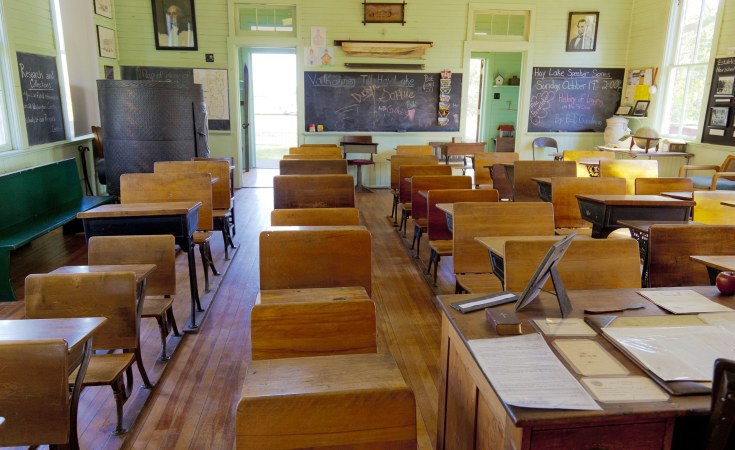A review of the proposed budget revealed that the government's proposed spending for education next year is less than seven per cent.
President Bola Tinubu's proposed 2024 budget increased allocations for the education sector when compared to the sector's allocation in the previous year.
But the increased spending for the sector is still below the recommendations of the global education agency, the United Nations Educational, Scientific and Cultural Organisation (UNESCO).
Going by UNESCO's recommendation, Nigeria should spend between 15 - 20 per cent of its annual budget on the education sector.
But a review of the proposed budget revealed that the government's proposed spending for education next year is less than seven per cent. When measured by percentage of the overall budget, it is also lower than the sector's 8.8 per cent spending for this year.
While Nigeria's allocation to the sector has grown over the years, it has consistently fallen short of the 15 per cent recommended threshold.
Proposed budget
Mr Tinubu's 'Budget of Renewed Hope', recently submitted to the National Assembly proposed a N27.5 trillion expenditure for the 2024 fiscal year.
A review of the budget indicates that the education sector got N1.54 trillion, representing 6.39 per cent of the total budget. This is far below the 15 per cent recommendation by UNESCO.
Although it failed to meet UNESCO's recommendation, the education sector has one of the highest allocations alongside defence and security (11.8 per cent) and Health (5.03 per cent).
The higher allocation to the defence sector may be connected to the over-a-decade-old war against insurgency in the North-east and other security challenges ravaging different parts of the country.
The health sector has also witnessed significant challenges including a wave of brain drain and the struggles for better funding for the sector and improved welfare for health workers.
Breakdown of 2024 Budget
Meanwhile, a review of the education budget revealed that the president budgeted N1.54 trillion for the Federal Ministry of Education and its agencies, including N50 billion for the Students Loan scheme scheduled to take off in January 2024. This amount is higher than the N1.08 trillion the education ministry received in the 2023 budget.
The 2024 budget allocated only N330 billion or 23 per cent for capital projects and the remaining N1.04 trillion or 77 per cent for recurrent expenditures - salaries and overhead costs.
The Universal Basic Education Commission (UBEC), the agency responsible for education at the grassroots, has N251.5 billion as allocation, which is higher than the N149.7 billion allocation it received in 2023.
Meanwhile, the allocation for the Tertiary Education Trust Fund (TETFund) is not included in the budget. TETFUND is funded through an Education Tax, which is two per cent of the profit of all Nigerian companies.
The Buhari years
Throughout Mr Buhari's eight-year tenure from 2015 to 2023, the education budget has hovered between 6 and 8 per cent.
In 2016, Mr Buhari allocated N369.6 billion or 7.9 per cent of the total budget to education, N550.5 billion or 7.4 per cent in 2017, N605.8 billion or 7.04 per cent in 2018 and N620.5 billion or 7.05 per cent in 2019.
In 2020, the allocations fell to N671.07 billion or 6.7 per cent, and N742.5 billion or 5.68 per cent in 2021, before rising to N1.18 trillion or 7.2 per cent in 2022. In 2023, the budget had the highest allocation by percentage at 8.8 per cent.
Education budget low - ASUU
The National President of the Academic Staff Union of Universities (ASUU), Emmanuel Osodeke, a professor, said the proposed education budget for 2024 is too paltry for a significant change in the sector.
Mr Osodeke said the union had expected the president to budget at least 15 per cent of the entire budget to the education sector.
"With this seven per cent education budget, nothing will change in the sector, it is just as we had during Buhari's time. Tinubu during his campaign promised to increase the education budget but nothing," he told the Punch.
"However, there is still a chance for him to change. But if there is no improvement on this and our other demands, by next year, we will mobilise our people and we can't stay like this because Oyo State has 15 per cent and Enugu State budgeted 32 per cent for education, but federal government is giving less than eight per cent.
"He can still increase it, they should liaise with the executives and come out with a budget that is not less than 15 per cent as he promised during the election."
An ailing Sector
Nigeria's education sector is grappling with multiple challenges including a high number of out-of-school children, a barely functioning basic education system and a chronically underfunded tertiary education sector.
Though the Universal Basic Education Act (2004) stipulates a free and compulsory basic education for young Nigerians, it is largely ineffective for many reasons including the deplorable state of infrastructure in that level of education, the shortage of teachers as well the low remuneration for the available teachers.
The tertiary education level, meanwhile, is characterised by workers' industrial actions stemming from underfunding of the system and workers' struggles for better pay. The situation has been further exacerbated by the brain drain hitting the sector.
This year, almost all federal universities hiked fees payable by students - some of them by more than 100 per cent. The universities attributed their decision to the need for more funds to keep the schools running.
Qosim Suleiman is a reporter at Premium Times in partnership with Report for the World, which matches local newsrooms with talented emerging journalists to report on under-covered issues around the globe


